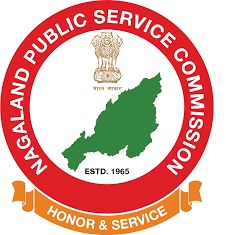npsc.nagaland.gov.in Syllabus Combined Technical Services Examination : Public Service Commission Kohima
Organisation : Nagaland Public Service Commission Kohima
Exam Name : Combined Technical Services Examination
Announcement : Syllabus
Website : https://npsc.nagaland.gov.in/syllabus
Syllabus For Combined Technical Examination
AGRICULTURAL ENGINEERING(DEGREE) :
PAPER-I :
1. Soil and Water Conservation: Definition and Scope of soil conservation mechanics and types of erosion, their causes, hydrologic cycle, rainfall and runoff-factors affecting them and their measurements, stream gauging-evaluation of runoff from rainfall. Erosion control measures-Biological and Engineering. Basic open channel hydraulics, design of soil conservation, structures-terraces, bonds, outlets and grassed water-ways. Principles of flood control. Flood routing, Design of farm bonds and earth dams. Stream bank erosion and its control. Wind erosion and its control. Principles of watershed management. Investigation and planning in river Valley Projects.
Related / Similar Syllabus :
NSSB Nagaland Syllabus Combine Uniform Services Examination CUSE
CBSE Syllabus Assistant Secretary, Various Administrative Posts Group A, B & C

2. Irrigation and Drainage-Soil-Water-Plant Relationship: Sources and types of irrigation. Planning design of minor irrigation projects. Techniques of measuring soil moisture.
Duty of water-consumptive use. Water requirements of crops. Measurements and cost of irrigation water. Measuring devices-flow through orifices, weirs and flumes. Leveling and layout of irrigation systems. Design and construction of canals, fields channels, pipelines, head-gates, diversion boxes structures and road crossing. Occurrence of ground water. Hydraulics of wells, types of wells, their construction, drilling methods. Well development testing of wells.
PAPER-II :
1. Building Materials-Kinds of building materials-their properties, timber, brickwork and R.C. construction, design of column, beams, roof trusses, joints, Layout of a farmstead. Design of farm houses, animal shelters and storage structures. Rural water supply and sanitation.
2. Farm Power and Machinery-Construction of different types of internal combustion engines. Ignition, fuel lubricating, cooling and governing systems of IC engines. Different types of tractors, chassis transmission and steering. Farm machinery for primary and secondary tillage, seeding machinery, interculture tools and machinery. Plant protection equipment. Harvesting and threshing equipment, machinery for land development. Pumps and pumping machinery.
3. Electricity and Rural Electrification-Power generation and transmission; distribution of electricity for rural electrification; A.C. and D.C. circuit. Uses of electric energy on the farm. Electric motors used in agriculture-types, selection, installation and maintenance.
ARCHITECTURE (DEGREE) :
PAPER-I :
I. Landscape Design: Principles of landscape design, landscape elements, materials, planning design.
II. Computer Aided Design: Application of computers in architecture and planning, understanding elements of hardware and software, programming languages-Fortran, Basic.
III. Environmental and Building Science: Elements of environmental science, ecological principles concerning environment, role of micro-climate in design control through design elements, elements of solar architecture, principles of lighting and illumination, basic principles of architectural acoustics, noise pollution and control.
IV. Visual and Urban Design: Principles of visual composition, proportions, scale, rhythm, symmetry, asymmetry, harmony, balance of form and colour, sense of place and space, division of space, focal point, vista, visual survey.
PAPER-II :
I. History of Architecture: Indian-Indus Valley, Vedic, Buddhist, Indo-Aryan, Dravidian and Mughal periods; European-Egyptian, Greek, Roman, Medieval and Renaissance periods.
II. Development of Contemporary Architecture: Development and impact on society since Industrial Revolution, influence of modern art on architecture, works of national and international architects, post-modernism in architecture.
III. Building Services: Civil-water supply, sewerage and drainage systems; sanitary fitting and fixtures; electrical and mechanical-principles of electrification of building; elevators, their standards and uses, air-conditioning systems.
IV. Construction Systems and Management: Building systems and prefabrication of building-elements, principles of joining, and principles of modular coordination.
V. Structural Systems: Behavioral characteristics of traditional building materials like mud, timber, bamboo, etc.; principles of strength of materials, design of structural elements in wood, steel and RCC; elastic and limit state design, complex structural systems, and principles of prestresing.
VI. Urban Services and Networks: Design principles of distribution and supply systems for water supply, sewerage, drainage, solid waste disposal and supply power health and demography related aspects of standards at town, neighborhood and site levels.
Pattern Of Exam For Combined Technical Examination
1. (a) There will be one combined paper on General English and General knowledge, and Paper-I & II (MCQ) in the Technical subject.
(b) The assignment of marks and time will be as follows:
Paper Maximum Duration
(i) General English & General Knowledge (Combined) 100 3 hours
(ii) Technical Subject Paper-I 200 -do-
(iii) Technical Subject Paper-II 200 -do-
2. The components of the combined paper on General English and General Knowledge shall be as follows:
Component Marks
(i) Essay 1X20
(ii) Precis writing 1X10
(iii) Amplification 1X10
(iv) Construction of sentence & Grammar 10
(v) General Knowledge, comprising of currents events, general science, mental ability, Indian history, Indian Polity, Indian economy, Geography, with combination of objective type and short descriptive answers. 50
Total: 100
3. For the Technical Subject Paper, the pattern of question will be Multiple Choice Question (MCQ) type. There will be 200 question on each paper, with 1(one) mark for each question, with negative marking of half for each wrong answer.

Download NPSC Syllabus
Download Syllabus for Combined Technical Services Examination (Technical Subjects) – https://www.syllabus.gen.in/uploads/pdf2024/3356-t.pdf
Download Syllabus for Electrician – https://www.syllabus.gen.in/uploads/pdf2024/3356-e.pdf